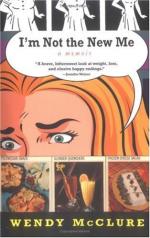Supperless, we wrapped our blankets closer, got ears and noses under, and tried to sleep. I had a few naps, but the roar outside, and the shaking of the hut as the storm smote it again and again, rendered continuous sleep impossible. Something had been loosened on the roof close overhead, and it rattled and banged as if the destruction of the hut had actually begun. It was a queer sound, angry, imperious, menacing, and it produced a quaking sensation. Sometimes it would die down, and, with a final rap or two, entirely cease. Then it would resume, with perhaps five strokes to the second, increasing to ten, then to twenty, and quickly rising to an ear-splitting r-r-r-h, terminated with a bang! bang!! bang!!! that made the heart leap, while the hut seemed to rock on its foundations.
Getting out of the bunk, I found by the sense of touch that the powdery snow-drifts were becoming steadily deeper on the floor. This recalled another incident which had greatly interested me during my preliminary reading at Chamonix. The winter before, Monsieur Janssen’s men had stored some of the heavier materials for his observatory near these rocks. At the opening of summer they could not be found, and no one knew what had become of them. Finally, as the snows melted and fell from the peak in slides and avalanches, the missing articles were uncovered, having been buried in a white grave forty feet deep.
And so the wild night passed, until with tedious deliberation the little window made a hole in the darkness, and I knew that morning was at hand. The howling without was as loud as ever, and the fine snow was packed high upon the window, shutting out a good share of the light. The floor was covered with white drifts, and my shoes had swallowed snow; but being hard and dry, it was easily shaken out. There was no fire to be built and no breakfast to be prepared. But it was impossible to lie still, even for the sake of keeping warm, and pulling on our shoes we stamped about the floor, and occasionally opened the door to see what the storm was about. Along about eight o’clock it began to lighten, and my hopes rose. We could catch an occasional glimpse of the crowning peak and of the observatory, which we knew contained two or three of Janssen’s men and some provisions. An hour later, when the storm seemed about at an end, and we were preparing to ascend to the top, we saw the men from the observatory coming down. They warned us that the snow above was in bad condition, and, believing that more foul weather was to come, they were embracing this opportunity to get down. Couttet proposed that we should accompany them, especially as they reported nothing left to eat at the observatory, but I declined. Again the event proved that he was right, for while we waited a little before starting out, the storm fell upon us once more. Then Couttet insisted upon descending, and I did not think it wise to oppose his decision, knowing that it was based upon experience and that he had nothing to gain and something to lose in returning without having conducted his “monsieur” to the summit.




